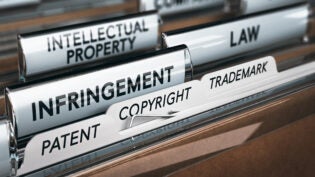10 Kinds of Potential Criminal Liabilities Businesses Could Be Exposed to in Singapore
By: SmallBizClub

Singapore is famous the world over for its unique laissez-faire approach to business. Not only do businesses enjoy very favorable tax rates but incorporating a business only takes a day in the city-state. However, this freedom to do business is not nearly as expansive as some pundits might have you think. The country’s legal frameworks make it possible to be exposed to multiple criminal liabilities for businesses in Singapore, for a wide range of activities.
In practice, criminal prosecutions for corporations in Singapore are relatively rare. The standard test for corporate criminal liability usually has the courts deciding whether the employee or officer involved in the offence can be deemed the “living embodiment” of the corporation and whether the offence was committed within the scope of their duties. In most cases, the courts will try to persecute individuals committing the crimes rather than the corporate entities that they belong to.
In any case, being charged with a criminal offence can still result in a catastrophic loss of reputation for a business, even if it is ultimately not prosecuted. With that in mind, businesses in Singapore should consider keeping a criminal defence lawyer on retainer for advice to ensure full compliance with local laws at all times. Here are some criminal offence liabilities that businesses in Singapore could face:
-
Securities Fraud
Part 12 of the Securities and Futures Act (SFA) outlines prohibited market conduct, including false trading, market rigging, and insider trading. Sections 196 to 204 of the SFA specifically address these offences. For the courts to prosecute insider trading, it should determine that the accused knew or should have known that the information was not available to the public and that using it would affect securities prices.
-
Accounting Fraud
Section 477A of the Penal Code criminalises the falsification of accounts by individuals in positions of trust. Typically, this includes clerks or business decision-makers. For a business to be liable, the courts must determine that the act (altering, destroying, or concealing records) was carried out intentionally with the intent to defraud.
-
Embezzlement
Sections 405 to 409 of the Penal Code cover Criminal Breach of Trust, including Embezzlement. The business must be found to have committed an act of dishonesty that resulted in the misappropriation or conversion of entrusted property for personal use. An intent to cause wrongful gain or loss should also be demonstrated by the courts.
-
Bribery of Government Officials
Sections 5 and 6 of the Prevention of Corruption Act (PCA) address bribery. Both giving and receiving corrupt payments or gratifications are criminalised. A presumption of corruption arises whenever a government employee is involved in such exchanges.
-
Criminal Anti-Competition
The Competition Act 2004 deals with anti-competitive practices. What could be considered “anti-competitive” encompasses a wide range of possible acts, including providing false information, and destroying documents, just to name a few. As with other criminal acts, intent must be demonstrated before a business can be held liable.
-
Tax Crimes
The Income Tax Act 1947, sections 94 and 94A penalises tax evasion. Fortunately, simply being late to file taxes or paying the wrong amounts will not put a business on the hook. It has to be shown that there was a willful intent to evade taxes. Intent can be supported by evidence of false statements or record entries, both of which may create a presumption of intent to evade taxation.
-
Money Laundering
The Corruption, Drug Trafficking and Other Serious Crimes Act 1992 (CDSA) addresses money laundering. The offence is normally defined as the handling the fruits of criminal conduct, either for oneself or for another party, with knowledge that the property was the result of criminal activity.
-
Cybercrimes and Data Theft
Multiple laws cover cybercrimes and data theft, including the Personal Data Protection Act 2012, the Computer Misuse Act 1993, and the Cybersecurity Act 2018. Depending on the nature of the crime, other laws may also be applied.
Non-compliance with obligations to protect personal data or unauthorised access to computer systems are key offences under these laws. With cybercrimes now becoming increasingly prevalent, breaches of these obligations have become far more likely to attract criminal liability.
-
Environmental Crimes
A multitude of laws, including the Hazardous Waste (Control of Export, Import and Transit) Act 1997 and the Environmental Protection and Management Act 1999 are leveraged against both businesses and individuals found liable for environmental offences. Acts that could be considered breaches of these laws include the unlawful handling of hazardous substances and failure to comply with environmental regulations.
10. Workplace Safety Violations
The Workplace Safety and Health Act 2006 (WSHA) regulates workplace safety in Singapore. Employers are required to take reasonable measures to ensure workplace safety. A failure to meet prescribed safety standards or negligence can result in criminal liability for businesses.
Protect Your Business from Common Criminal Liabilities
Singapore’s legal landscape is complex enough that businesses can easily be on the hook for breaches of criminal law without its decision-makers even realising it. For that reason, you must consult with the right legal experts if you plan on running a business in Singapore. Implementing compliance programs and regular audits can also help mitigate the risks associated with these criminal liabilities. Staying proactive with these matters should help you avoid legal troubles and help cultivate the positive reputation you need to do business in the city-state.
929 Views












